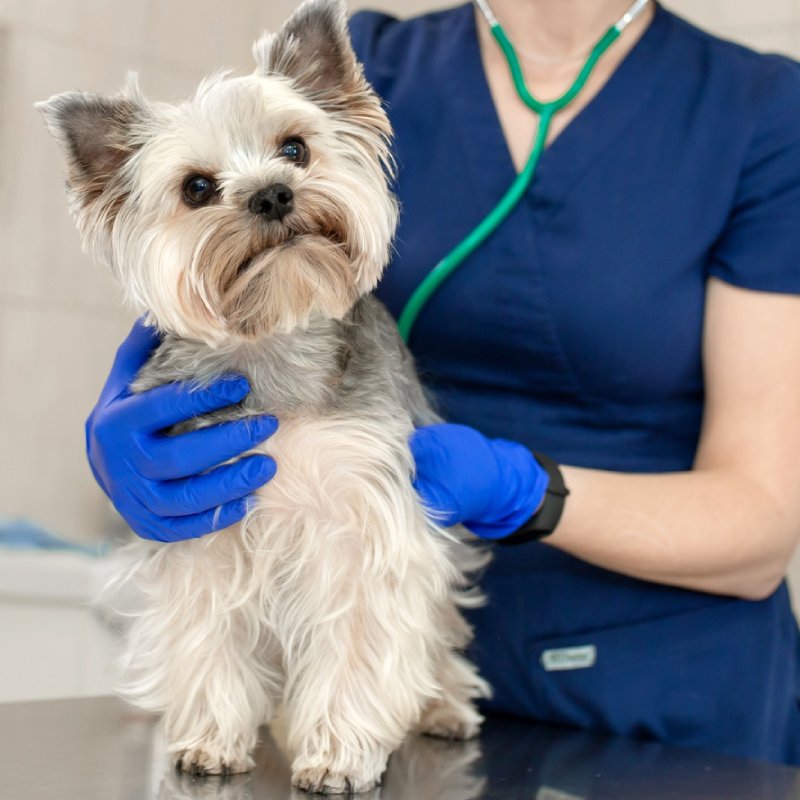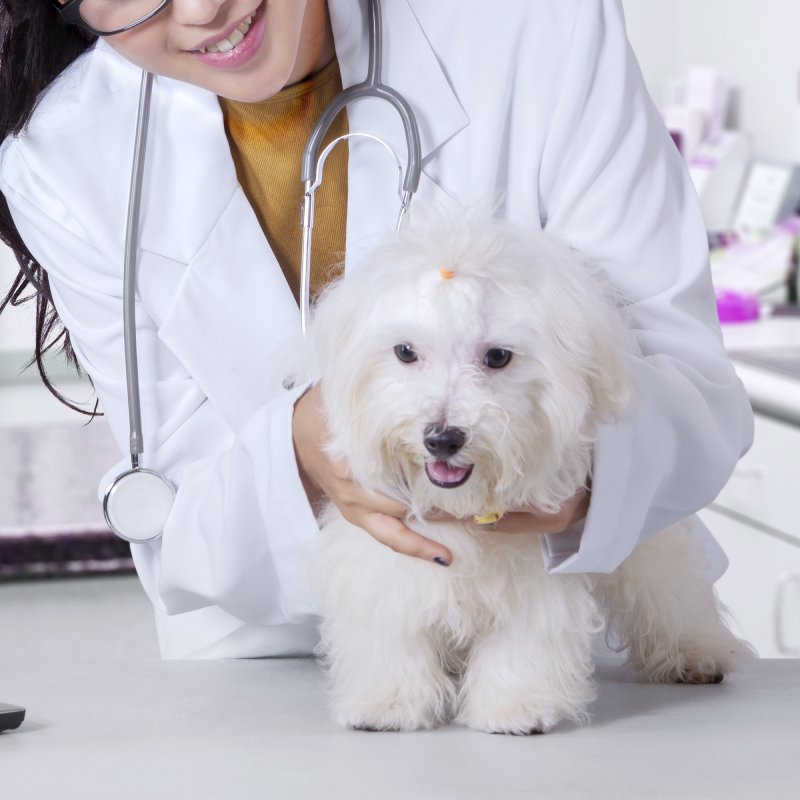Pet Exams in Bend
Learn more about our pet exams below.


We all understand the importance of regular health checkups, and most pet owners know that checkups for our pets are just as important as they are for us. That’s because regular visits to a veterinarian can help maintain and improve your pet’s health, leading to increased lifespan, improved vitality, and better overall quality of life.
Here at East Bend Animal Hospital, we recommend that pets receive a full physical examination at least once a year. This is because pets have a shorter lifespan than humans, and their health needs can change considerably in as little as a few months. Regular veterinary visits can help keep your furry friends in the best of health and provide you with the peace of mind every responsible pet owner deserves. The trained staff at East Bend Animal Hospital offers comprehensive health care for your pets during all stages of their lives: from puppies and kittens to aging pets.
So many of us depend on our four-legged friends for unconditional love and companionship. In return, our pets deserve the very best when it comes to health care. Let the experienced staff at East Bend Animal Hospital help you give your pets the care they need and deserve. Give us a call today to set up an appointment for your favorite furry companions.
Wellness exams provide your veterinarian with an opportunity to monitor your pet’s health and screen for health problems before they become potentially serious problems. Diagnosing and treating health issues in the early stages can often result in less expensive care with a better outcome. Sometimes your veterinarian will recommend diagnostic testing such as blood tests and urinalysis to screen for potential problems before they are apparent on a physical exam. This is particularly important in our aged pets as they are more likely to develop problems as they age. The American Animal Hospital Association recommends once-yearly pet exams for healthy pets and once every 6months for older pets. In pets with established health concerns, the frequency of exams and lab work should be tailored to their particular needs.
Parts of The Wellness Exam
Vital signs:
Temperature, pulse rate and rhythm, respiration rate and pattern, and body weight are all checked.
Ears:
The ears will be checked for signs of bacterial or yeast infection, allergic reactions, parasites, and the possibility of foreign objects, such as grass seeds, when indicated. Otitis Externa (external ear infection) is a very common problem in dogs especially. Even something as simple as heavy accumulations of ear wax can impede a pet’s hearing and be uncomfortable. Ensuring your pet’s ears are healthy is an important part of the wellness exam.
Eyes:
The eyes should be checked for any abnormalities, such as actual wounds or infectious diseases, as well as signs of systemic disease, such as jaundice.
Mouth:
Proper dental care is just as important to our pets as it is to us. During an exam, the condition of the teeth, gums, oral cavity, and tongue should be evaluated. Animals with other problems can sometimes present with changes seen during an oral exam, such as pale mucous membranes or jaundice.
Heart health:
Checking the heart for sounds associated with abnormal blood flow (murmurs) or abnormalities in rhythm and rate is an important part of the wellness exam. Some puppies and kittens can be born with heart abnormalities, and as animals age, they can develop heart problems. If we do detect an abnormality in the heart during the exam, we have the option of doing a complete echocardiogram using ultrasound to classify the problem further and design an appropriate treatment plan.
Lungs and upper respiratory system:
Signs of lung disease can be detected using a stethoscope and by monitoring the respiratory rate and pattern. In some cases, radiographs can be taken to help evaluate the lungs. Infectious lung disease, asthma, and bronchitis are some examples of the types of lung issues we sometimes see in our patients. Upper respiratory infections are sometimes seen in patients adopted from pet rescue facilities and shelters where there is often a large population of animals in close proximity. These animals may present coughing or sneezing.
Skin and coat:
Skin problems are very common in dogs and cats. External parasites such as fleas and ticks are quite common in animals not on some form of preventative. We are fortunate to have many products available to protect our pets from external and internal parasites both safely and effectively. Allergic skin reactions, skin growths or tumors, and bites or scratches (especially in cats) are examples of problems we often see. Checking the skin for signs consistent with the systemic disease is an important part of the wellness exam.
Gastrointestinal tract:
Vomiting, diarrhea, and loss of appetite are signs consistent with gastrointestinal problems and can range from mild to serious. These same signs can present with problems associated with liver disease, kidney disease, and other organ dysfunction. During a wellness exam, your veterinarian will palpate the abdomen to detect changes in organ size or signs of pain within the abdomen. If abnormalities are noted, we may recommend further diagnostics such as a blood test, a fecal exam, radiographs, or an abdominal ultrasound.
Bones and joints:
As our pets age, it’s not uncommon for them to develop arthritis and decreased mobility. Often clients are the first to notice changes in how well their pet is getting around. The wellness exam offers your veterinarian an opportunity to check for arthritis and other problems associated with the bones and joints and design a treatment plan to assist your pet in remaining as active and free of discomfort as possible. Acute or sudden onset of bone or joint issues is also fairly common, and it’s important to distinguish between a chronic problem versus an acute injury which may be treated surgically.
